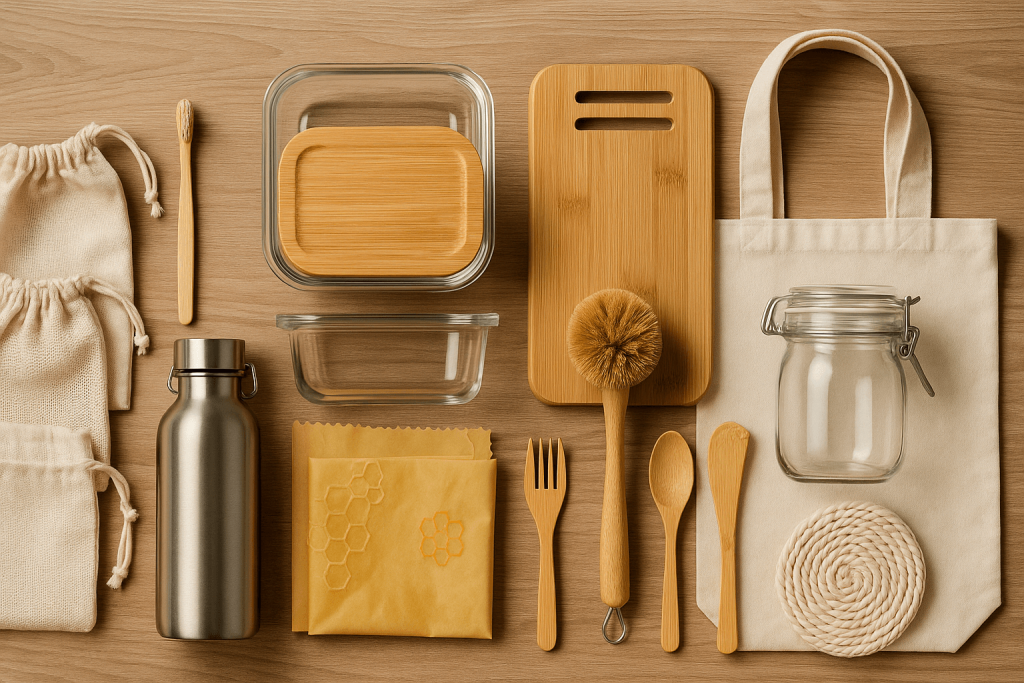Beyond Plastic: Eco-Friendly Alternatives That Actually Work

The global plastic crisis is impossible to ignore — oceans clogged with waste, microplastics invading our food chain, and overflowing landfills that will outlive generations. But solving the plastic problem doesn’t mean sacrificing convenience or functionality. Thanks to innovation, eco-friendly alternatives have evolved — and many of them outperform plastic in both durability and sustainability.
If you’re ready to reduce your environmental footprint without compromising your lifestyle, it starts with knowing which alternatives truly deliver.
Why Plastic Is a Global Problem
Plastic is durable, cheap, and everywhere — but its environmental cost is staggering:
✔ 8 million tons of plastic end up in oceans yearly
✔ Microplastics are found in drinking water, food, and even human blood
✔ Plastic waste can take 500+ years to degrade
✔ Only about 9% of plastic is ever properly recycled
The solution? Swapping everyday plastic products for better, planet-friendly options that work just as well — or better.
Eco-Friendly Alternatives That Actually Perform
1. Reusable Glass and Stainless Steel
Perfect for food storage, bottles, and containers:
- Non-toxic, durable, dishwasher safe
- No risk of microplastics leaching
- Long lifespan with proper care
2. Bamboo and Wood
Sustainable, compostable materials ideal for:
- Cutlery, plates, and serving ware
- Toothbrushes and hairbrushes
- Home decor and accessories
3. Silicone (Food-Grade)
Flexible, heat-resistant, and reusable:
- Food storage bags and lids
- Bakeware and kitchen tools
- Baby products like bibs or teething toys
Note: Ensure it’s platinum-cured, high-quality silicone for safety and durability.
4. Bioplastics and Compostable Alternatives
Made from corn starch, sugarcane, or other plant-based materials:
- Compostable trash bags
- Biodegradable cutlery
- Plant-based packaging
5. Beeswax Wraps and Fabric Covers
Replace cling film and plastic wraps:
- Reusable, washable, and compostable
- Keeps food fresh naturally
6. Natural Fiber Textiles
Cotton, hemp, or jute bags and storage:
- Replace plastic shopping bags
- Durable and biodegradable
- Ideal for storage, gift wrap, or organizing
The Pitfalls: Greenwashing to Avoid
Not all “eco” products are created equal. Watch for:
✔ Misleading labels — “biodegradable” often requires industrial composting
✔ Cheap bamboo mixed with plastic resins
✔ Low-quality silicone that breaks down quickly
✔ Products shipped from afar, offsetting their sustainability
Prioritize local, certified, and transparent brands committed to genuine environmental responsibility.
Small Swaps, Big Impact
Transitioning away from plastic doesn’t require drastic lifestyle changes:
✔ Reusable water bottle = 167 plastic bottles saved yearly
✔ Beeswax wraps = 200 meters of cling film avoided yearly
✔ Tote bags = 500+ single-use bags eliminated annually
Conclusion: Sustainable Convenience Is Possible
Eco-friendly alternatives aren’t about sacrifice — they’re about smarter, conscious choices. By choosing well-designed, durable replacements for plastic, you reduce waste, protect your health, and support a more sustainable future.
The best part? These alternatives don’t just work — they look and feel better, too.




